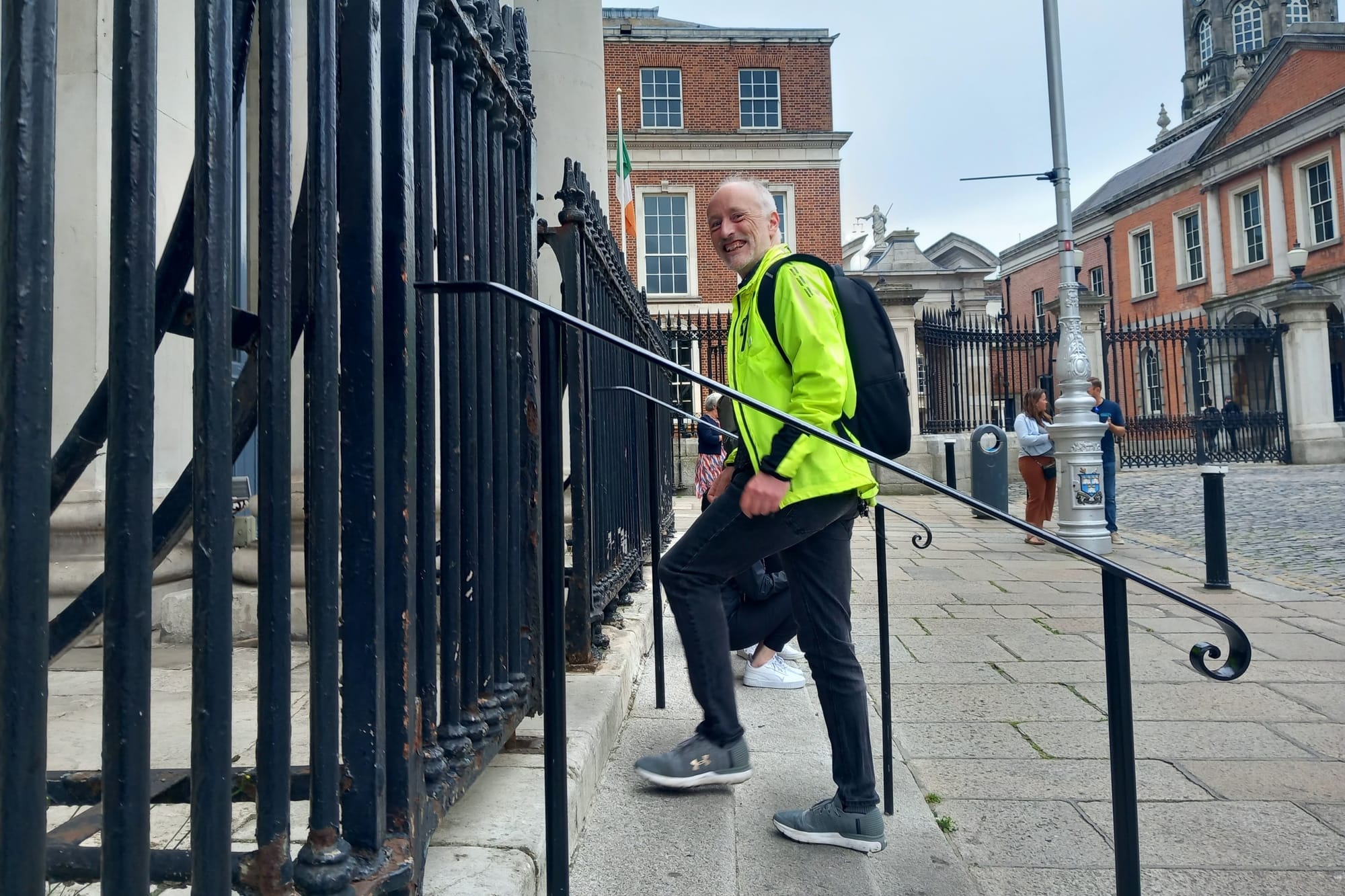What’s the best way to tell area residents about plans for a new asylum shelter nearby?
The government should tell communities directly about plans for new asylum shelters, some activists and politicians say.
The code of conduct for councillors says they cannot post “content that promotes, fosters, or perpetuates discrimination”.

Twenty-five new councillors started work in Dublin City Council last week, joining 38 older-hands.
And for all 63 elected representatives, winning a seat means they are subject to rules covering, among other things, how they behave in meetings and online on social media.
They can’t, the rules say, post “profane or derogatory language or content” online or “content that promotes, fosters, or perpetuates discrimination”.
The councillors’ code of conduct – which is based on the ethical framework laid out in the Local Government Act 2001 – also covers conflicts of interest, gifts and lobbying.
“Core values such as integrity, impartiality and respect are fundamental to the public’s perception of local government performance,” says the code.
“Moreover, they require councillors to observe the highest ethical standards when delivering on their roles,” it says.
Anyone can report code breaches to the council.
If that happens, the council’s ethics registrar reports this to the council’s chief executive, who will investigate the matter together with the lord mayor, if necessary, says a spokesperson for the Standards in Public Office Commission (SIPO). What happens next, depends on the nature of the allegations.
“The code of conduct is set down really clearly,” says independent Councillor Mannix Flynn, who sat on the protocol committee last term.
But there are gaps, says Green Party Councillor Janet Horner, who also sat on that committee. “We need a process for removing people from committees if they are repeatedly disruptive,” she said.
A complaint can be resolved formally or informally, depending on what it is, says the council’s protocol for dealing with complaints against elected members.
The council doesn’t need to investigate complaints about private matters or very minor things, it says. And, it doesn’t usually investigate anonymous complaints, but can do if the matter is serious and sufficient supporting evidence is submitted.
Following a complaint, the ethics registrar will inform the councillor that a complaint has been made about them.
If an investigation is deemed necessary, the council’s chief executive has to put the complaint to the councillor, giving them a chance to respond.
Council officials investigate the matter and write a report on their findings, which they send to the councillor and the complainant.
If the councillor is continuing to breach the code, the council should lay out the steps they need to take, within a specified timeframe, in order to ensure compliance.
At that stage the councillor can apologise and the ethics registrar retains a copy of the report.
Some breaches of the code are criminal offences, says a spokesperson for the Standards in Public Office Commission (SIPO).
Depending on the seriousness of the matter, the CEO can refer it to SIPO or if necessary to An Garda Síochána – or take any other course of action that he or she deems appropriate.
If SIPO carries out an investigation it then prepares a report which goes to all councillors for consideration, and to decide on what action is necessary, says the SIPO spokesperson.
Neither Dublin City Council nor Fingal County Council have responded to queries sent Thursday as to how many investigations they carried out into councillors who broke the code of conduct in the last 10 years.
Flynn, the independent councillor, says that each councillor has a mandate to represent the people who voted for them and robust debate is expected.
“There is a certain leeway in terms of argument,” says Flynn. “But if there is any indication of racism or inflamed speech it will be brought to their attention straight away.”

The chairperson will then ask the councillor in question to temper their language and the chair can ask a councillor to leave a meeting if necessary, says Flynn.
Flynn says the council doesn’t monitor social media, but could respond if it received a complaint.
Labour Councillor Dermot Lacey, who has been on the council for 30 years, since well before MySpace launched, says that he cannot recall a case where a councillor was investigated for their use of social media.
He says that if a councillor becomes disruptive in a meeting, the chairperson can ask them to leave.
But it isn’t clear if a councillor can be suspended from meetings for weeks or months. “I’ve never seen further action taken,” says Lacey.
In past cases, he recalls the councillor in question apologised, he says.
Flynn says that if a councillor went too far in a meeting, they can apologise or retract afterwards. “You can purge yourself,” he says.
In 2020, Fine Gael Councillor Danny Byrne apologised after a council investigation into a complaint that he had contacted the council’s Housing Assistance Payment (HAP) team on behalf of a tenant for a property where he was acting as the estate agent.
According to The Journal.ie, Byrne was found in breach of the councillors’ code of conduct for requesting that a HAP tenant be moved from a property he was trying to sell as an estate agent.
Councillors have held disruptive protests in the past, says Flynn. In 2016, he was escorted from City Hall by Gardaí after he sat on the windowsill of an upstairs room in protest at the council’s involved in the Artane Band.
But, says Flynn, there is a difference between protest and hate speech. Hate speech and threats should be referred to An Garda Síochána, he says.
Horner, the Green Party councillor, who also sat on the council’s outgoing protocol committee, says the council should have clear sanctions in place for people – whether councillors or other committee members – who repeatedly disrupt meetings.
“Aggressive and inappropriate behaviour can be an issue in meetings,” she says. “There is an on-going issue with sanctions.”